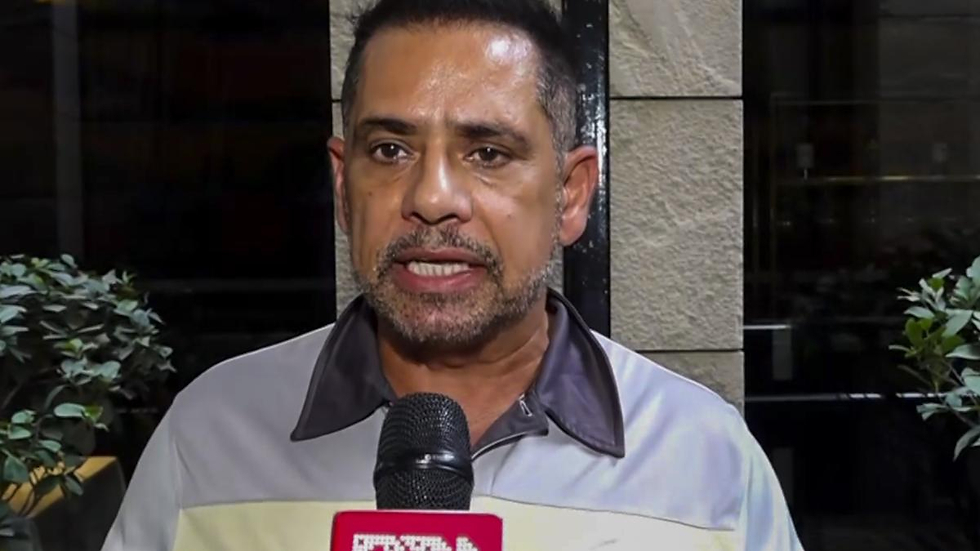Congress’s Dangerous Rhetoric and the Truth About Modi Government’s Inclusivity
- MGMMTeam

- Aug 12, 2025
- 3 min read
The recent remarks by Robert Vadra, a businessman and husband of Congress leader Priyanka Vadra, attempting to link the Pahalgam terror attack to alleged “Hindu problems for Muslims,” mark yet another disturbing instance of the party’s divisive politics. Instead of standing united with the victims and condemning the perpetrators, Vadra chose to frame the incident as a reaction to supposed Hindu actions, indirectly providing justification for the terrorists’ motives. This approach is symptomatic of Congress’s old vote-bank strategy—pitting communities against each other, rather than working for national unity.

Misplaced Sympathy and Questioning of Operation Sindoor
The skepticism shown by several Congress leaders towards Operation Sindoor further exposes the party’s willingness to undermine India’s security narrative. Leaders such as Rashid Alvi dismissed the operation as “the bare minimum” and questioned whether every terrorist had been neutralized. Others, like Bhupesh Baghel, demanded explanations on why the terrorists were not caught before reaching Pahalgam, subtly shifting blame onto the government.
Even in Parliament, Congress leaders like Gaurav Gogoi challenged the timing and execution of the operation, raising doubts about its effectiveness. Randeep Surjewala criticized the Prime Minister’s “silence” and hinted at possible diplomatic compromises, while Pawan Khera made incendiary remarks suggesting “Sindoor ka sauda,” implying betrayal.
How Can They Question Our Leader and Echo Terrorist Narratives?
At a time when the nation needed to speak in one voice against terrorism, these statements from Congress leaders mirrored Pakistan’s propaganda. Home Minister Amit Shah openly questioned Congress’s stance, asking, “What will you gain by saving Pakistan?”. PM Modi himself accused certain opposition figures of “demeaning” the operation and “supporting terrorists for vote-bank politics”.
Evidence from the field—such as Pakistani-origin chocolates, medicines, and voter IDs found with the terrorists—was ignored or dismissed by these leaders. Instead of strengthening India’s position internationally, their remarks seemed to provide political cover to enemy narratives.
Modi Government’s Schemes for the Welfare of Minorities
Contrary to Congress’s attempts to portray the BJP as anti-minority, the Modi government has implemented numerous schemes that have tangibly improved the lives of minorities, including Muslims, Christians, Buddhists, and others.
1. Nai Manzil Scheme This program provides integrated education and skill training for youth from minority communities, enabling them to secure better employment opportunities. Thousands of Muslim students have completed formal education alongside vocational training, helping them break cycles of poverty.
2. Hunar Haat A flagship initiative showcasing and promoting traditional crafts of artisans from minority communities. Muslim craftsmen and women have benefitted through direct sales, government-backed stalls, and international exposure.
3. Pre-Matric and Post-Matric Scholarships for Minorities Lakhs of students from economically weaker sections of minority groups receive scholarships annually, allowing them to continue their studies without financial burden.
4. USTAAD (Upgrading the Skills and Training in Traditional Arts/ Crafts for Development) This scheme has revived dying crafts, many of which are practiced predominantly by Muslims, thereby preserving cultural heritage and providing sustainable livelihoods.
5. Stand-Up India & Mudra Yojana Minority entrepreneurs, especially women, have been empowered with loans for business startups, significantly increasing their participation in India’s economic growth story.
The statistics speak for themselves—over 50% of the beneficiaries of several central government welfare schemes are from minority communities. This is not tokenism; it is genuine empowerment.
How Minorities Have Thrived Under Modi’s Leadership
Far from the fearmongering pushed by Congress and its affiliates, ground realities show that many Muslims have openly expressed satisfaction with the government’s schemes. From modern educational opportunities to improved infrastructure in Muslim-majority localities, the focus has been on development without discrimination. This has fostered an environment where minorities can aspire for better futures within a secure and stable India.
Conclusion: Congress’s Politics of Division vs. Modi’s Politics of Development
The Pahalgam terror attack was an assault on the unity of India. Instead of unequivocally condemning it, Congress leaders have made statements that dilute the seriousness of the incident, shift blame onto Hindus, and indirectly justify the violence.
Meanwhile, Prime Minister Modi and his government have pursued a policy of Sabka Saath, Sabka Vikas, Sabka Vishwas—working tirelessly to uplift every community, with special focus on the marginalised. The contrast could not be starker: one side politicizes terror and sows division; the other builds roads, schools, and opportunities for all.
India deserves leaders who unite the nation against terror, not those who parrot the language of our enemies.
(Sources: OpIndia, The Print, Times of India, Economic Times, Indian Express, Times of India, India Today)




Comments